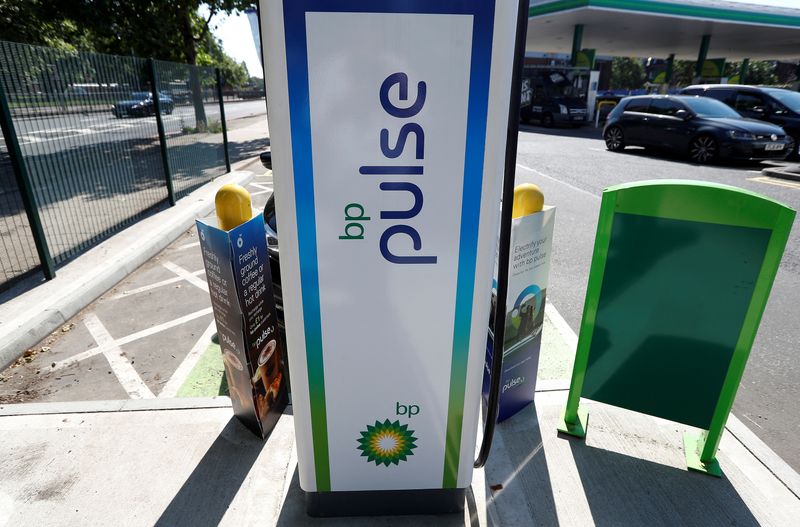By Ron Bousso
LONDON (Reuters) -BP has cut over a tenth of the workforce in its electric vehicle charging business and pulled it out of several markets after a bet on rapid growth in commercial EV fleets didn't pay off, company sources said.
The changes at BP (NYSE:BP) Pulse are part of CEO Murray Auchincloss's efforts to focus on the British company's most profitable segments as it battles investor doubts over its plan to shift away from oil and gas to low-carbon energy.
BP Pulse in recent months reduced the number of countries it focuses on from 12 to four - the United States, Britain, Germany and China - where it expects the fastest growth in the EV market, BP told Reuters.
It also earmarked Australia, New Zealand and France as growth countries, it said.
As a result, the division axed over 100 jobs in recent months, or over 10% of its global workforce of 900, with many employees being moved into other divisions and only a handful leaving the company, the sources said.
BP did not comment on the exact numbers of jobs that were cut.
The move comes as automakers across the world tighten their belts amid a slower than expected uptake of EVs. U.S. EV pioneer Tesla (NASDAQ:TSLA) will lay off more than 10% of its global workforce, an internal memo showed, as it grapples with falling sales and an intensifying price war for EVs.
EV charging, however, remains one of five key growth engines for BP, which is betting on customers spending more time at its convenience sites while powering up their cars using fast chargers.
BP had over 29,000 charging points globally at the end of 2023, compared with 22,000 a year earlier, it said in its annual report. It aims to have 100,000 points by 2030.
"Our EV ambitions have not changed," BP said. The changes at BP Pulse are "a step towards ensuring that we can execute our goals with even greater precision and effectiveness".
BP Pulse has also stepped away from several bets it made since launching its energy transition strategy under previous group CEO Bernard Looney in 2020.
BP initially expected commercial car fleets would be first and fastest to switch to EVs at scale, but that did not pan out, in part because governments eased mandates for switching to EV vehicles, Auchincloss told analysts in February.
"We thought fleets would move first. But given recessionary pressures and some relief from governments, fleets have slowed down," Auchincloss said.

BP last May also shut down its home EV charging business. The company now focuses mostly on fast charging hubs.
The company says it expects returns from its EV charging and convenience stores operations to exceed 15% and create $1.5 billion in earnings before interest, taxes, depreciation, and amortisation by 2025.